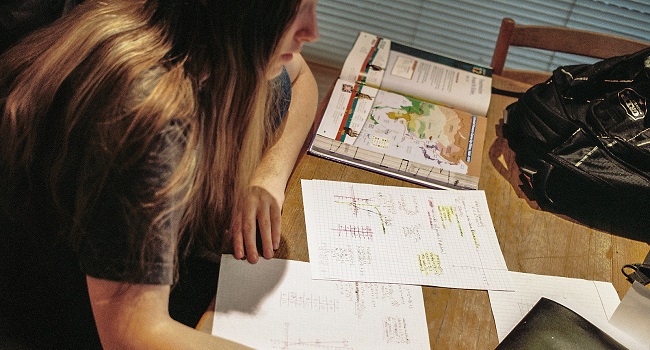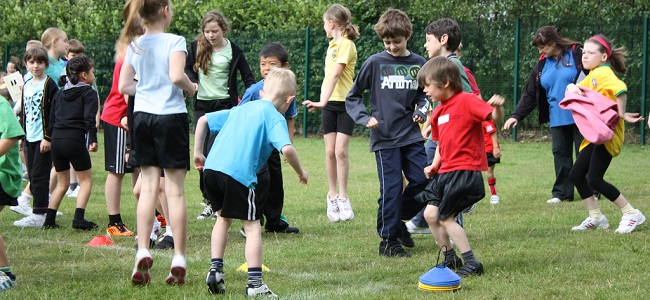Arguably more than any specialist area of education, SEN pupils require certain qualities for a good education. Here, Nicky Broomhall, Principal at Star Academy Sandyford, discusses how her school has embraced SEN teaching.

As special needs programmes have become an increasingly important consideration for mainstream educational institutions, SEN provision is now a hot topic of discussion for primary schools striving to offer that extra level of support to their pupils.
Despite the frequent, outstanding advances in edtech we see daily, there are still certain areas of education that have stayed mostly unchanged for some time. Here, veteran teacher Jim Baker discusses the problem that he sees with the traditional lesson format, and how it can easily be changed for the better.

From my biography, you’ll see I’ve been in the classroom for 43 years so am speaking from first-hand experience, not to court votes or to agree with what is ‘flavour of the day’. My presentation ‘The Way Forward’ will give you an idea of what my passion is: to educate students into becoming independent learners. I don’t like the word ‘teach’ so I avoid it whenever possible. When asked my profession I say I’m an entertainer. Check out comment #42 in my guestbook by a former colleague back in 2005, who was pleased to see I was “still blurring the boundaries between teaching and entertaining”.
Do British pupils get enough of the outdoors during lesson time? What can al fresco teaching offer both students and teachers? Natalie Harling, the Outward Bound Trust’s head of education development, explains why a bit of fresh air can do the education system a lot of good.

Being outdoors is good for you. This is something we are taught from an early age that fresh air and exercise, both indoors and outdoors, are beneficial to our wellbeing. However, as teachers we usually associate the outdoors with playtime, free time and enjoyment. It’s Friday, it’s half term, it’s the summer holidays – and perhaps not as the impactful outdoor place of learning that it can be.
Do you get the most from your students’ love of social media? US Journalist Kayla Matthews discusses the best ways in which Twitter et al can be used to raise school pride and activity.

You’ve probably used social media to send class updates, event invitations and other school-related news. You may have also had to compete with Twitter and Instagram for your students’ attention. But did you know social media can also be the perfect platform for boosting school engagement and awareness?
What can bespoke quizzes offer the classroom? School librarian and trained quiz writer Kate Barton discusses how best to go about creating these activities for your classroom.

For over six years I’ve used an educational software program which quizzes school students on books they have read. The quizzes are designed to measure to what extent readers have understood the books, and ensure that their choices are both enjoyable and suitably challenging for them.
My name is Ira Cross, Jr. and I am an elementary school teacher in Columbus, Ohio in the U.S. I am ecstatic to have recently finished my first year of teaching! I am very humbled and excited to have the opportunity to write this article, and have been told I have this fiery energy about me that fits teaching so perfectly, and it is rewarding when my excitement is noticed. I am always looking for, and thinking of, ways to show my passion and enthusiasm. One way that I love to share this energy with my students is by hosting game shows and other activities to review information taught and discussed.
Recently, I was reminded of Baz Luhrmann's chart-topping single from 1998 called ‘Wear Sunscreen’. The song itself was based on an article written by Chicago Tribune Pulitzer Prize winning journalist Mary Schmich. Schmich wrote that "inside every adult lurks a graduation speaker". It got me thinking about what advice I would give to NQTs and others about to embark on a career in teaching... So, here goes.
Teaching in Japan has given me a plethora of new experiences, but I didn’t expect to see such a fundamentally different style of education. Tokyo Drift lied about schools in Japan. The students don’t use laptops or phones in school. They use pencils and erasers, they grade their own assignments, and can be trusted to sit in an hour of study without adult supervision.
This article is about how simple dances can be used to improve student learning about complex cellular processes. The dances are easy to follow and bring complicated topics to life. They help students learn about processes and terminology which they might otherwise find difficult, dry or hard to remember. The dances afford a multisensory approach to learning; they are a fusion of art and science and a blend of fun and serious biology.

A community-driven platform for showcasing the latest innovations and voices in schools
Pioneer House
North Road
Ellesmere Port
CH65 1AD
United Kingdom